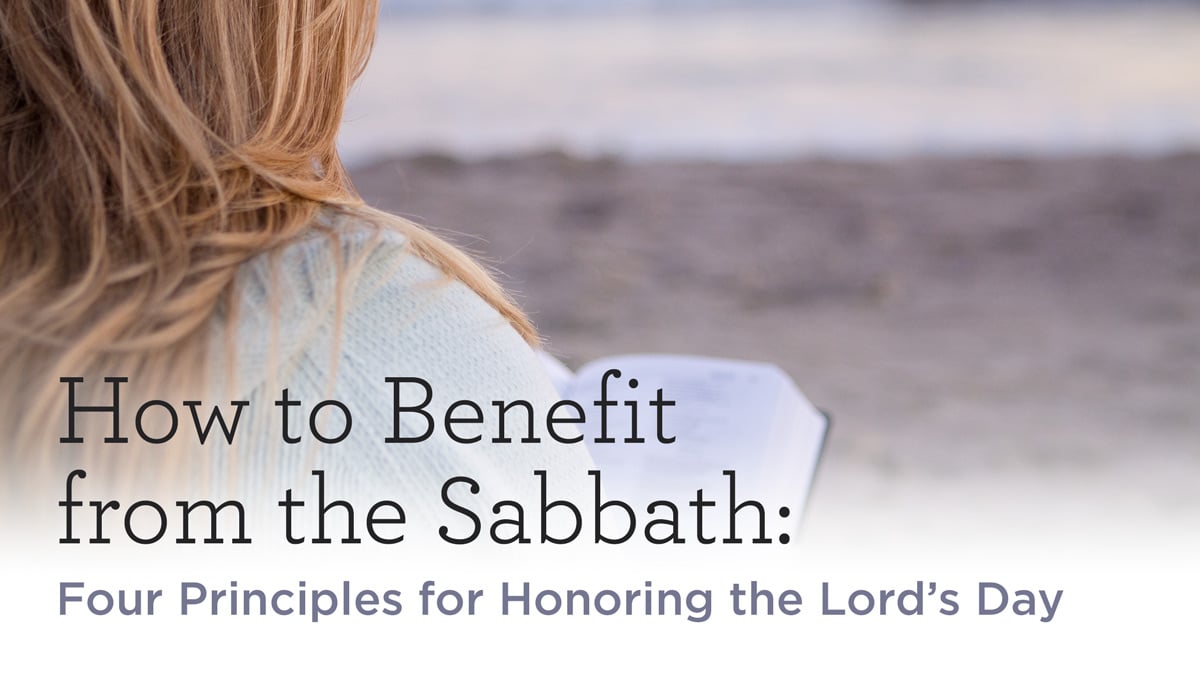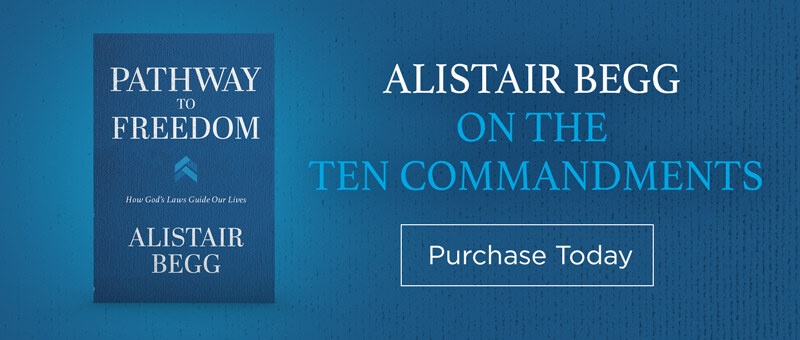
Why do Christians worship on Sundays? The answer goes deeper than mere custom or convention. Indeed, it goes to the very heart of our faith.
We worship on Sundays—what many now know as the Lord’s Day—because it was on “the first day of the week” (Luke 24:1; John 20:1) that Jesus conquered death and rose from the dead. (See also Matt. 28:1; Mark 16:1.) The New Testament gives us several indications that after Jesus’ resurrection, Sunday quickly supplanted Saturday as the day on which the first Christians assembled for worship and kept the Sabbath command:
- “On the first day of the week, when we were gathered together to break bread, Paul talked with them.” (Acts 20:7)
- “On the first day of every week, each of you is to put something aside and store it up, as he may prosper, so that there will be no collecting when I come.” (1 Cor. 16:2)
- “I was in the Spirit on the Lord’s day, and I heard behind me a loud voice like a trumpet.” (Rev. 1:10)
Because of this post-resurrection distinction, we sometimes fail to remember that the fourth commandment’s direction to “remember the Sabbath day, to keep it holy” (Exod. 20:8) still applies to us. To help us obey this commandment, let’s consider four ways we can benefit from remembering and honoring the Sabbath on the Lord’s Day.
1. Consider the biblical warrant for the Sabbath.
If we would profit from the Lord’s Day, we must understand the reason for keeping it in the first place. Until then, all talk about the Sabbath will appear cultural, customary, or even legalistic. Yet Sabbath keeping is not an arbitrary mandate for a bygone theocratic nation-state called Israel but is grounded in both creation and redemption.
We see Sabbath keeping grounded in creation in Exodus 20:11, immediately following the fourth commandment itself: “In six days the LORD made heaven and earth, the sea, and all that is in them, and rested on the seventh day. Therefore the LORD blessed the Sabbath day and made it holy.” In other words, this principle of rest isn’t confined to a specific time in Israel’s history but finds its basis in who God is and how He has designed the world.
In Deuteronomy 5:15, we also see that God roots the Sabbath command in redemption: “You shall remember that you were a slave in the land of Egypt, and the LORD your God brought you out from there with a mighty hand and an outstretched arm. Therefore the LORD your God commanded you to keep the Sabbath day.” The connection of Sabbath rest to deliverance and redemption from dark days foreshadows the rest we find in Christ: “There remains a Sabbath rest for the people of God, for whoever has entered God’s rest has also rested from his works as God did from his” (Heb. 4:9–10). In other words, Christ’s coming ushered in a rest that will last for all eternity. While we yet await its ultimate fulfillment, we already live with a taste of it.
Christ’s coming ushered in a rest that will last for all eternity. While we yet await its ultimate fulfillment, we already live with a taste
2. Understand the opportunity of the Sabbath.
If we have already entered God’s rest in Christ, then why do we need to devote one day in seven to honoring this rest?
One answer, of course, is that doing so is the clear biblical pattern. Beyond that, though, we also know that God continually calls His people to manifest outwardly the spiritual reality that is already ours in Christ. We don’t merely have holiness; we exhibit it. We don’t merely have joy in the Lord; we show it. We don’t merely possess rest; we demonstrate it. The Lord’s Day is a grand opportunity to connect the spiritual reality of rest with how we live and to enjoy the abundance of the Lord’s rest with His people.
But that’s not all. In Psalm 16:3, David proclaims, “As for the saints in the land, they are the excellent ones, in whom is all my delight.” Is this statement true of us? Do we take delight in the people of God? In our more honest moments, we know that we can be as difficult to get along with as anyone else. Thankfully, though, the gathering of God’s people on the Lord’s Day gives us an opportunity to forebear and express the same kindness and tenderness to each other that the Lord has shown us. In observing the Sabbath, we can delight in the saints as we take joy in Jesus Christ together.
3. Refrain from unnecessary activities on the Sabbath.
For the Lord’s Day to provide us with worship and fellowship, we must actually commit ourselves to rest for the day. As much as possible, we should refrain from any activities—be they work, recreation, or anything in between—that inhibit resting in God and with His people.
The Westminster Shorter Catechism asks, “How is the Sabbath to be sanctified?” Its answer is as follows:
The Sabbath is to be sanctified by a holy resting all that day, even from such worldly employments and recreations as are lawful on other days; and spending the whole time in the public and private exercises of God’s worship, except so much as is to be taken up in works of necessity and mercy. (Q. 60)
Similarly, in answer to the question “What is forbidden in the fourth commandment?” it offers this explanation:
The fourth commandment forbiddeth the omission or careless performance of the duties required, and the profaning of the day by idleness, or doing that which is in itself sinful, or by unnecessary thoughts, words, or works, about our worldly employments or our recreations. (Q. 61)
Except in cases of piety, necessity, and mercy, Scripture gives no valid reason for professing Christians to work on the Lord’s Day. It’s the prevailing influence of our secular culture, not God’s Word, that has normalized working without this day of rest and remembrance.
Circumstances certainly ebb and flow. Needs may demand that work be done on Sundays as well as weekdays. You may need to provide special care for a child or an aging parent. Your employer may not honor the Lord’s Day or permit you to. But as far as it is possible, and as much as possible, we ought to give the day to the Lord in worship and protect it against being overrun with careless trivialities.
4. Commit yourself to spiritual improvement on the Sabbath.
Fourthly and finally, if the Lord’s Day is a day for resting in God with His people, then it is by nature a day of spiritual improvement.
Perhaps you have never read the Bible through. Did you know that if you determined to read just five or six chapters at three points on the Lord’s Day, you would read through the whole Bible in a year, even if you never read it Monday through Saturday? And surely there we can all commit ourselves to more prayer, more meditation on God’s goodness, more fellowship, and more reading of books that enrich the soul.
Every other day of the week, we are probably moving at a million miles an hour, going here, there, and everywhere, just to get by in a fast-paced world. In such a world, how much more do we need to prioritize a day of intentional, concentrated, unplugged rest!
A Day of Delight
As you’ve been reading along, perhaps you’ve had thoughts along these lines:
- How can I rest with my toddler or baby?
- How can I find rest when I have to care for my aging parent?
- I’m a nurse; there’s no way I can always be off on Sundays.
- I travel for work and am regularly away on the Lord’s Day.
If these are your circumstances, take comfort in this: the Lord knows and understands. The Sabbath is not a cessation of all that we must do but a reorientation of what we now want to do in Christ: to honor the Lord and to delight ourselves in Him (Ps. 37:4).
Consider, in closing, how God speaks of the Sabbath in Isaiah 58:13–14:
If you turn back your foot from the Sabbath,
from doing your pleasure on my holy day,
and call the Sabbath a delight
and the holy day of the LORD honorable;
if you honor it, not going your own ways,
or seeking your own pleasure, or talking idly;
then you shall take delight in the LORD.
When we understand this, we will see the services of the Lord’s Day not as intrusions but as the blessings they are. In Sabbath worship and fellowship, we get one of our clearest glimpses of the joys of heaven we will someday enjoy.
This sermon was adapted from the sermon “Holy Day or Holiday — Part Two” by Alistair Begg.
Topics: Articles
